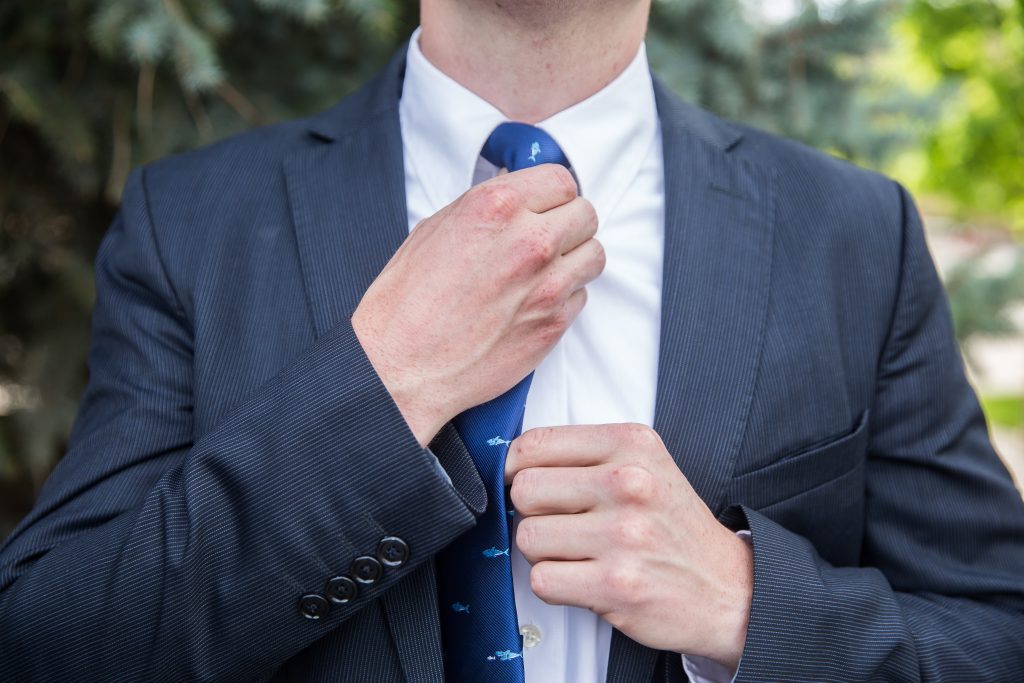
Wearing the most comfortable clothing to wait in line and take a test may sound like a good idea, but a Northwestern study says otherwise.
The study found that those who wore clothes they perceived as more professional performed better and had improved focus on exams.
Although the study found that a higher dress standard for tests can improve performance, what students wear to a test isn’t always something they think about. BYU psychology student Laurel Peacock said she sticks to a test preparation routine that doesn’t involve much extra thought about what she wears.
“My test routine is usually simple. I review any last minute material, I get out the materials I need for my test and I pray,” Peacock said. “I do not put thought into what I wear for tests beyond considering whether I will be comfortable and also stay awake and aware.”
The clothing worn for test taking also isn’t a priority for BYU microbiology student Arden Clark. She said taking a test is more about finding the time to go to the testing center rather than sticking to a set routine.
“Typically when I have to take a test, I go to take it right after classes,” Clark said. “I just kind of go with whatever I normally attend class in.”
The study also found those who were dressed more formally also had improved test scores — not because dressing up made them know the material any better, but helped them have the right mindset to recall the information. Peacock said to her, it makes sense that the people who dress up for tests also took the time to study and prepare for the test material.

From her personal experience, Clark said she thinks the findings of studies make sense and dressing professionally has an effect on your performance.
“I can understand why that would be a thing. Dressing up for the part is important and puts your mind in the right spot.” Clark said. “I just came back from my mission, so obviously, we have to wear skirts and blouses every single day. I noticed on days where, if we had a service activity and I was in jeans and a sweatshirt, I felt I was in a very different mindset than on the days I was going out and proselyting and teaching.”
Oxford University implemented a uniform for taking exams in 1636. The uniform, called “sub fusc,” consists of black shoes, a plain white shirt or blouse with a bow tie (or long tie or ribbon) and a dark suit with dark socks or stockings. In 2015, the university had students vote on whether or not to keep the uniform. The vote was overwhelmingly positive and the uniformed stayed.
There was something about the exam uniform that made Oxford students feel special and helped them perform to the best of their abilities on their exams.
While some Oxford students said the uniforms were “uncomfortable and anachronistic,” 19-year old Harrison Edmonds wanted them to stay because they make all students – no matter their backgrounds – look equal.
BYU American studies student Dan Dunford said dressing up for tests is something he and other students might want to think about in the future.
“It’s something I’m going to think about next time I got to take a test,” Dunford said. “I think that if it helps the test score a lot of people will be interested in it. Everyone here (at BYU) is really invested in their grades and their education.”
While some students may be on board for trying something new, some just want to stick to what’s been working for them in the past. As a psychology student, Peacock said she thinks it is worth putting in some extra effort, but more than likely won’t be changing her own routine.
“I think that as long as clothing is comfortable and not annoying, then it has little effect on my attitude during tests,” Peacock said.
It may take extra time and effort, and dressing up for a test while still a student may not seem like the most pleasant idea to some, but Dunford said he thinks it could be a healthy habit for students to adopt.
“I think it’s good practice for life outside of college,” Dunford said. “I think college is a very unique time where you can get away with not dressing nice or maybe not taking care of yourself as well as you should. Once college is over, that time is over and it’s a different world.”




